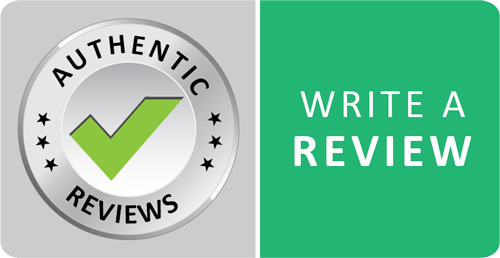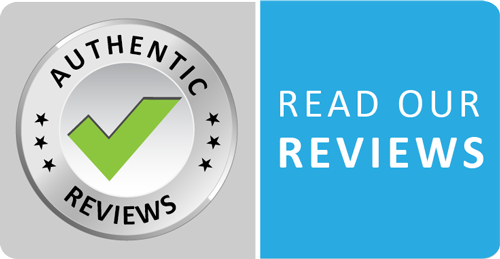If you’re a longtime reader of my articles, you follow my website, or you’ve read my books Escaping the Gray and Think and Grow Rich For Inventors, you likely have already noticed that Oprah Winfrey is one of my personal heroes.
She started out being raised by a single teenage mother on welfare and used her traumatic early lived experience as the fuel that launched her to a successful stage and screen career.
That success, in turn, propelled her to become the richest Black woman in the world, with an estimated worth at the time of this writing of about $2.2 billion.
Because of Oprah’s undeniable cultural cachet, aka the “O Factor” or “the Oprah Effect,” a nod from her can launch a brand to the stars. Sales of books like Fifty Shades of Gray by E.L. James and The Bluest Eye by Toni Morrison skyrocketed based on inclusion in Oprah’s personal book club or on-air mentions from the Queen of Daytime TV. Her seal of approval is a hotly coveted and contested commodity, and her disapproval can irrevocably tarnish a decades-long career in just seconds. With this unprecedented level of power, one might think brand dilution would be of no concern to Oprah or Harpo Productions, her personal-label production company.
And one would think wrong.

Oprahdemics, a podcast billed as being dedicated to “the unauthorized study of The Queen of Talk,” is being sued by Oprah’s production company, Harpo Productions, over the inclusion of Oprah’s name in their title.
Harpo asserts that, the explicit disclaimer “unauthorized” aside, by using Oprah’s name in that context, the podcast’s creators are indicating that Oprah has personal involvement, sponsorship, or approval over the podcast and its content, leading to potential consumer confusion and damage to Oprah’s existing brand.
In a relatively unusual move, Harpo Productions is not seeking damages, to recoup profits Oprahdemics has earned from the proceeds of the podcast or live events the show’s creators have put on in the past, or to force the podcast to cease doing what it does. Harpo simply wants Oprahdemics to change the name to reflect that the podcast does not in fact enjoy Oprah’s patronage or sponsorship. On its face, this is not a particularly onerous or unreasonable request, given that Harpo Productions’ legal team has earned a reputation for hair-trigger ruthlessness when it comes to protecting Oprah’s various brands and keeping them safely insulated from controversy.
In fact, compared to some brand dilution allegations I’ve talked about lately, this is downright neighborly, the involvement of the courts in this case notwithstanding.
For the part of the founders and cohosts of Oprahdemics, Kellie Carter Jackson and Leah Wright Rigueur, they say the podcast’s content is an academic historical study of Oprah’s meteoric rise to power as evidenced by her more famous and cultural relevant talk show episodes driven by sincere admiration from diehard, dedicated fans. While noting that Oprah is human and therefore as capable of error and missteps as anyone else, they also observe that Oprah as brand is an institution in her own right and therefore worthy of study specifically because of her unprecedented reach, perceived authority, and self-evident power.

No one in their right mind would argue that such an achievement or person should not be studied as a template for people of all demographics to follow, and Oprah herself is certainly worthy of evaluation simply on the strength of her own achievements.
This would, on the surface, leave the podcast in the realm of critique and commentary, and therefore constitute fair use of Oprah’s name because without Oprah’s existence for evaluation, Oprahdemics couldn’t possibly exist.
The dichotomy this sets up makes for a very interesting case because academic study and critique, like truth, satire and parody, have long been held as affirmative defenses to conduct that would otherwise unquestionably and categorically be violations of intellectual property law and/or might be considered libelous or slanderous.
(Note: To the best of my knowledge, no assertion or insinuation of libel or slander has been made by Harpo Productions or anyone else in connection with this case. I only bring it up in this context because libel and slander fall under the complex of otherwise-infringing content and speech in which truth, et al are affirmative defenses, at least to some degree.)
They can absolutely advance the argument that by being forced to change the podcast’s name, they miss a prime opportunity for understanding from their listeners about what they can expect from the content of the podcast, which could ultimately lead to the podcast’s quiet demise, at huge cost to the creators of the show. Besides, rebranding is not a cheap undertaking, even for a small business, so it is possible that aside from potential loss of audience or loss of recognition, the rebranding costs and efforts alone could sink the podcast permanently.
However, Harpo Productions raises a perfectly valid and logical counterpoint, contending that simply having a disclaimer on the site, such as “unauthorized,” does not automatically mean one has blanket absolution of responsibility for any damage or harm a brand or person might suffer because of one’s actions or published content.
One does not simply become a cultural touchstone and let just anyone run off willy-nilly with their brand to their own ends, if one intends to remain a cultural touchstone.
In this respect, Harpo’s legal team has a point. The fact that the Oprahdemics title could be construed as having Oprah’s imprimatur in some way, the disclaimer be damned, could be said to have directly influenced and attracted listeners because of Oprah’s name and the (erroneous) assumption unsophisticated listeners with little patience for fine print might hold that Oprah was somehow directly involved with the podcast to one degree or another. Because of this, Harpo could argue that Oprahdemics and its hosts benefited unfairly and were unjustly enriched by the reflected, stolen glow of the O Effect. Looking at it from this perspective, the fact Harpo is only suing Oprahdemics to change the name and not going after bank accounts is both incredibly generous and about as commonplace as riding a live dodo through downtown Miami.
The Bottom Line
As always, I haven’t seen all the documentation and evidence, and I’m not involved with either side’s legal team to know what their rationales, tactics, and strategies might be. This is purely educated speculation and my own best guess backed by experience as to how this is all going to shake out.
The fact that Harpo Productions is not seeking damages, coupled with the reflected and associated star power of Oprah Winfrey herself, even if she never takes the witness stand herself, might be enough by themselves to prejudice a jury against the Oprahdemics side right off the bat. While the academic analysis argument might hold up in court, depending upon the judge and jury assigned to the case, Harpo Productions likely has far more resources to throw at a protracted legal battle than the Oprahdemics crew and would likely have an appeal ready to file before the last echoes from the judge’s gavel died away if the verdict went to Oprahdemics. What I expect will happen is, the Oprahdemics team will settle out of court, likely with a name change that still allows them to signpost the original podcast, such as “Talking Talk (formerly Oprahdemics).” This would allow both sides to save a little face, minimize the expense of a case in open court, and create a compromise both sides could theoretically find amenable.
If nothing else, this case will certainly give IP attorneys something to talk about for quite some time to come!
ABOUT JOHN RIZVI, ESQ.

John Rizvi is a Registered and Board Certified Patent Attorney, Adjunct Professor of Intellectual Property Law, best-selling author, and featured speaker on topics of interest to inventors and entrepreneurs (including TEDx).
His books include “Escaping the Gray” and “Think and Grow Rich for Inventors” and have won critical acclaim including an endorsement from Kevin Harrington, one of the original sharks on the hit TV show – Shark Tank, responsible for the successful launch of over 500 products resulting in more than $5 billion in sales worldwide. You can learn more about Professor Rizvi and his patent law practice at www.ThePatentProfessor.com
Follow John Rizvi on Social Media
YouTube: https://www.youtube.com/c/thepatentprofessor
Facebook: https://business.facebook.com/patentprofessor/
Twitter: https://twitter.com/ThePatentProf
Instagram: https://www.instagram.com/thepatentprofessor/



